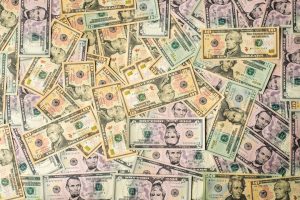Forex trading is a highly popular and lucrative market that allows traders to make profits by buying and selling currencies. However, like any other form of income, Forex trading is subject to taxation. The question that often arises is how much do I have to make on Forex to pay taxes? In this article, we will explore the answer to this question in detail.
Forex Trading and Taxes
Forex trading is a type of investment that is subject to taxation. The Internal Revenue Service (IRS) considers Forex trading to be similar to stock trading and other investments. Therefore, all profits generated from Forex trading are subject to taxation. However, the tax laws that apply to Forex trading are slightly different from those that apply to other forms of investment.
The tax laws that apply to Forex trading are complex and vary from country to country. Therefore, it is important to consult with a tax professional to ensure that you are complying with all applicable tax laws. In the United States, Forex trading is subject to capital gains tax. Capital gains tax is a tax on the profits earned from the sale of an asset, such as a currency or a stock. The tax rate for capital gains varies depending on your income level and the length of time you held the investment.
How Much Do I Have to Make on Forex to Pay Taxes?
The amount of money you have to make on Forex to pay taxes depends on several factors. First, it depends on your income level. If you are in a higher tax bracket, you will have to pay a higher tax rate on your Forex profits. Second, it depends on the length of time you held the investment. If you held the investment for less than a year, you will have to pay a higher tax rate on your profits than if you held the investment for more than a year.
In the United States, the tax rate for capital gains ranges from 0% to 20%. If you are in the lowest tax bracket, you do not have to pay any capital gains tax on your Forex profits. However, if you are in the highest tax bracket, you will have to pay a capital gains tax of 20% on your Forex profits. Additionally, if you held the investment for less than a year, you will have to pay a higher tax rate on your profits.
How to Calculate Your Forex Taxes
Calculating your Forex taxes can be a complex process. To calculate your taxes, you will need to keep track of all your Forex trades, including the date of the trade, the currency pair traded, the profit or loss generated from the trade, and the length of time you held the investment. You will also need to calculate your capital gains or losses for each trade.
To calculate your capital gains or losses, you will need to subtract the cost basis of the investment from the sale price of the investment. The cost basis is the original purchase price of the investment. For example, if you purchased a currency pair for $100 and sold it for $150, your capital gain would be $50.
Once you have calculated your capital gains or losses for each trade, you can add them up to determine your total capital gains or losses for the year. If you have a net capital gain, you will have to pay capital gains tax on the profits. If you have a net capital loss, you may be able to deduct the loss from your taxable income.
Conclusion
In conclusion, Forex trading is subject to taxation, and the amount of money you have to make on Forex to pay taxes depends on your income level and the length of time you held the investment. The tax laws that apply to Forex trading are complex, and it is important to consult with a tax professional to ensure that you are complying with all applicable tax laws. By keeping track of all your Forex trades and calculating your capital gains or losses, you can determine your tax liability and ensure that you are paying the correct amount of taxes.





